What made church stabbing ‘terrorism’
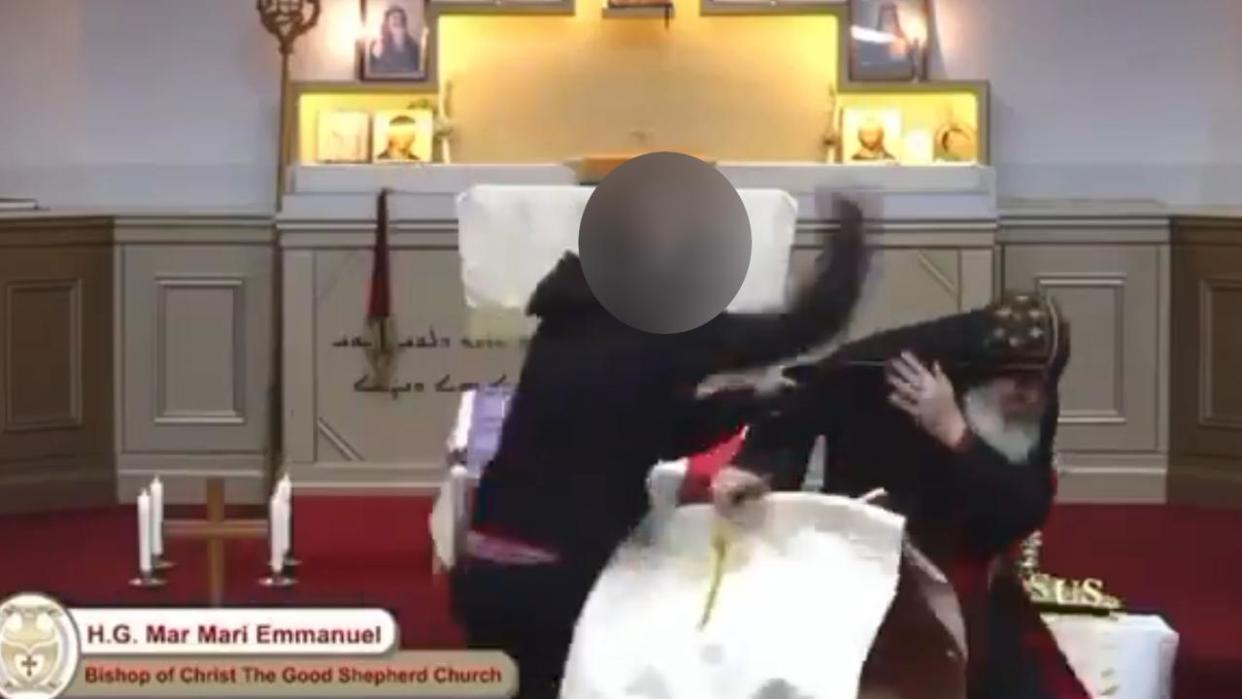
Sydney is once again reeling after a 16-year-old boy allegedly carried out a “disturbing” terrorist attack when he stabbed a high profile bishop and priest in the city’s southwest on Monday night.
The attack came just days after the Joel Cauchi’s deadly rampage across the city at Westfield Bondi Junction, where he killed six people and injured a dozen more before he was shot dead by a police officer.
Tensions are high across the city, and local MP Dai Le said she feared the decision to label Monday’s attack on Bishop Mar Mari Emmanuel and a priest at Wakely’s Church of Christ the Good Shepherd a terrorist attack could have significant impacts on social cohesion.
Questions have also swirled about why the events inside the church were so quickly deemed a terrorist attack, while the deadly siege at Bondi Junction was not.
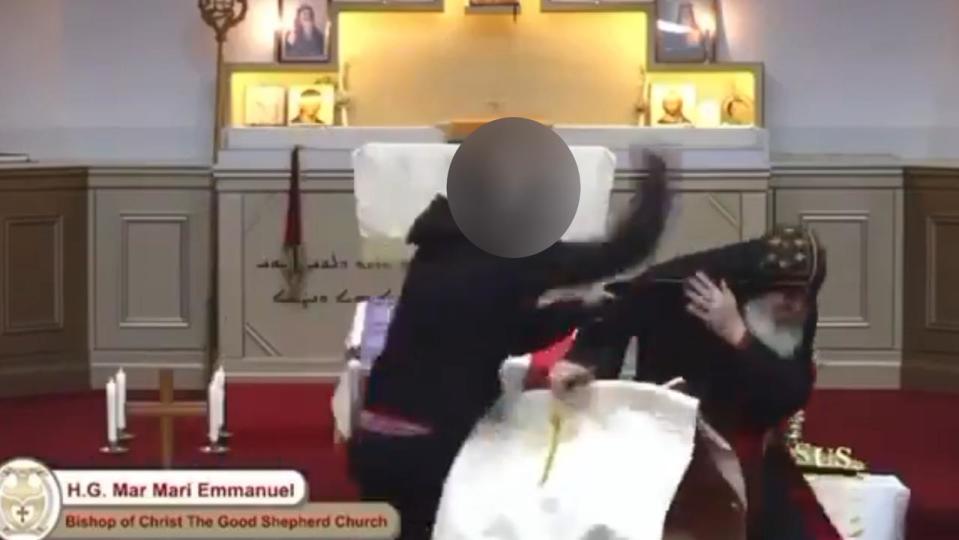
In the aftermath of the church attack, officials on Tuesday morning were quick to spell out why.
Director-General of ASIO, Mike Burgess said there were clear differences.
“The simple answer is to call it a terrorist act, you need indications of information or evidence that suggest the motivation was religiously motivated or ideologically motivated,” Mr Burgess said.
“In the case of Saturday, that was not the case.
“In this case, the information we have and the police have before us, indicates that is strongly the case.
“That is why it was called an act of terrorism.”
Terrorism expert Greg Barton said a terrorist incident was defined by an individual’s motivation, which involved by extension a social network.
“If one man is angry and has mental health issues and does something... that can just be a tragedy,” he said.
“If the same person is part of a group talking to each other and attacks someone - whether they’re women, Jews, Muslims, whatever the group is angry about, it moves from being a one-person hate crime to one person as a part of a group carrying out a terrorism attack.
“A terrorist act is one based on individuals, motives, and an intend to bring about change.”
Mr Burgess said the current terror threat level remained at “possible” and would not be raised.
“One incident like this does not change the threat level but we keep it under review,” he said.
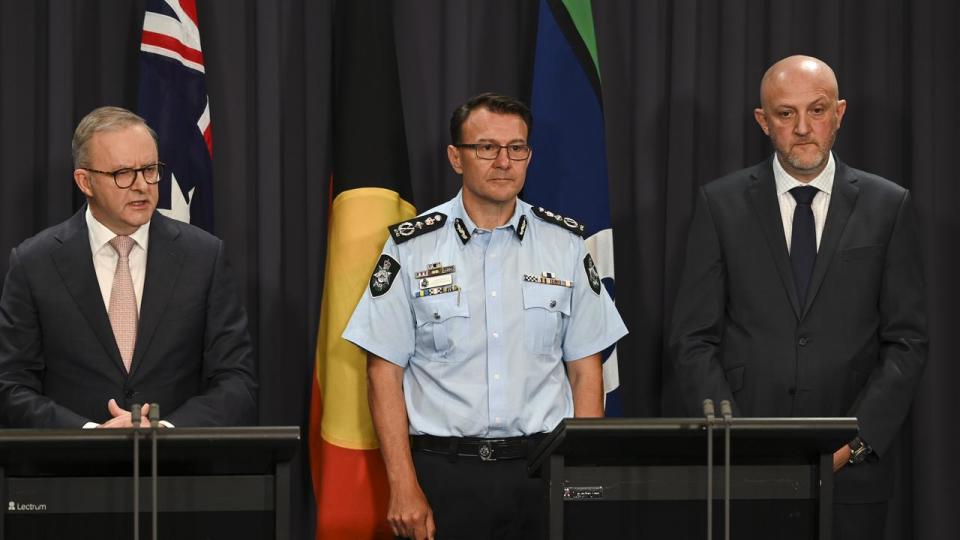
Officials are also investigating reports the alleged 16-year-old attacker made comments about “the Prophet” as churchgoers waited for authorities.
According to reports, he said in Arabic: “If he (the Bishop) didn’t get himself involved in my religion, if he hadn’t spoken about my Prophet, I wouldn’t have come here”.
“If he just spoke about his own religion, I wouldn’t have come,” it’s been reported he said.
The Bishop has previously criticised Islam and the Prophet Mohammed in public sermons.
NSW Police Commissioner Karen Webb, who made the decision to call the alleged stabbing a “terrorist attack” early Tuesday morning, said she had been informed by a number of factors.
“The things that influenced my decision … was the actions of the individual who we will allege attended that church with a knife, armed with a knife, and stabbed the bishop, priest and others were also injured,” she said.
“We believe the elements that are satisfied in terms of religious motivated extremism, and of course, the intimidation of the public through that person’s acts.
“By attending that church, whilst it was being live streamed, intimidating not only the parishioners in attendance, but those parishioners watching online, and subsequently those people that turned up to the church on the outside and the subsequent riot that happened.”
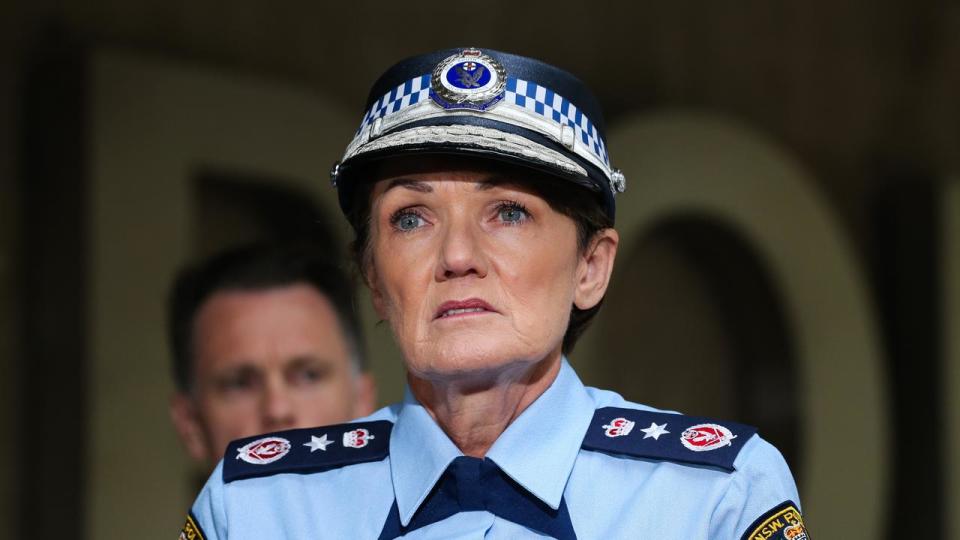
Ms Le said she was “very concerned” by the decision to declare it a terrorist attack, saying people “won’t feel safe in our community now”.
“As political leaders of our community, to go so quickly to declare that in a community like ours, I am very concerned for their safety. It’s doing the opposite,” she told ABC News.
“You’re not going to be able to create cohesion with that language and those words. I hope they have a very good reason for that.
“They’re not living in my multicultural and multi-faith communities. They’re not living here. “So, standing out there in Macquarie Street, wherever they are, declaring that on this small community, I am very concerned.
“I’m not exaggerating to feel sick in the stomach that the Premier has done that. But I hope he has a good reason to do this. And I pray to God that they get to the bottom of this.”
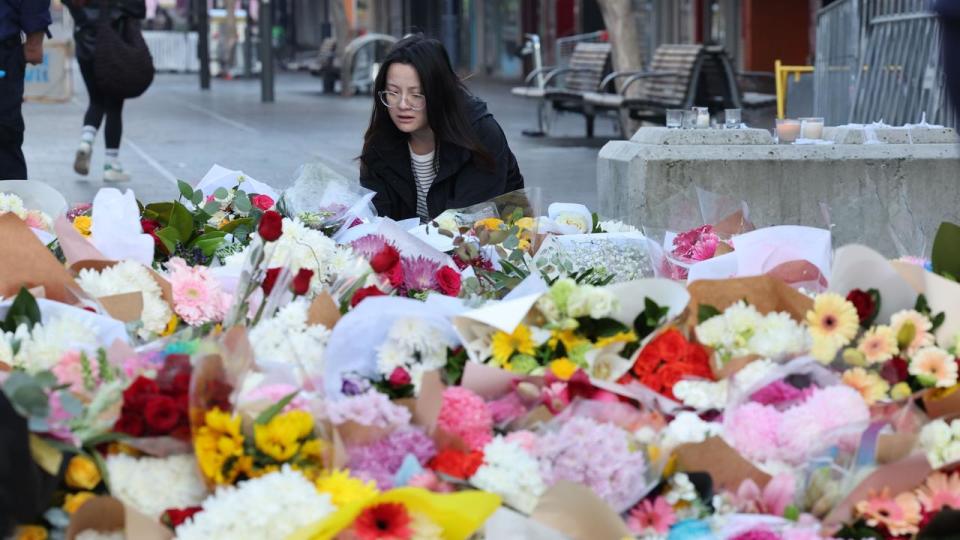
Meanwhile, police say Saturday’s murderous spree has been linked to Cauchi’s mental health.
He was a schizophrenic, and his parents had concerns about his wellbeing in the lead up to the attack.
But police believe he targeted women, given five of his victims were women, as were the bulk of the injured.
Cauchi’s father on Monday told media his son had likely targeted women because he “wanted a girlfriend, and he had no social skills”.
“He was frustrated,” Andrew Cauchi said.
Professor Barton said Saturday’s events were “tragic”, but would only have been called a terrorist attack if it was found Cauchi had been part of a wider group united by wanting to take action against women.
“Domestic violence terrorises more people than anything else, but this wasn’t a terrorist act,” he said.
Anthony Albanese was on Tuesday asked why such a violent act, borne out of a misogynic ideology, was not deemed a terrorist attack.
The Prime Minister said he didn’t want to get into a “definitional debate”, but Saturday’s incident had made clear how significant a problem violence against women was.
“It’s far too prevalent … We know that violence, tragically, against women occurs far too (often) in our society,” he told ABC Radio on Tuesday morning.
“On average, more than once a week, a woman dies at the hand of someone that they know. That is a scourge, that we as a society and governments have a role to play.”
The last declared terrorist attack in Australia was the deadly Wieambilla shootings in December 2022, which officials deemed religiously motivated.


